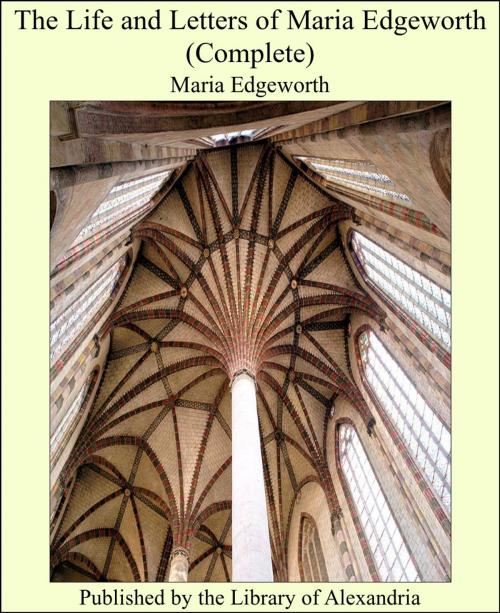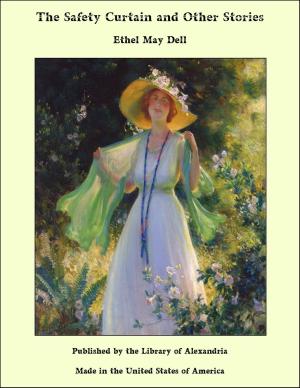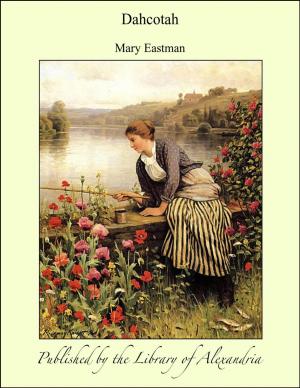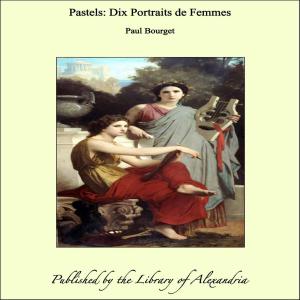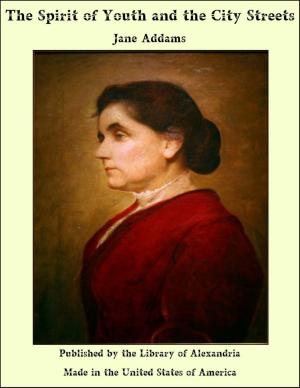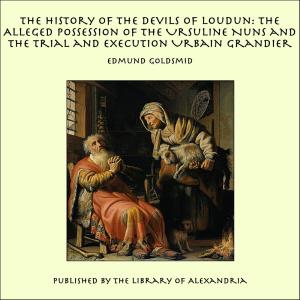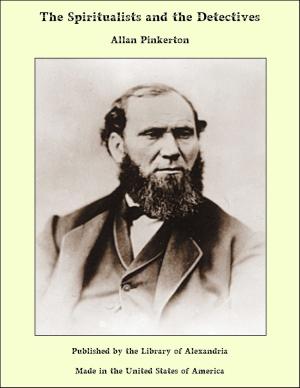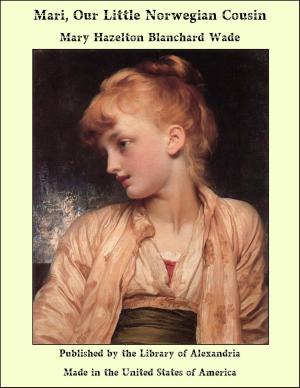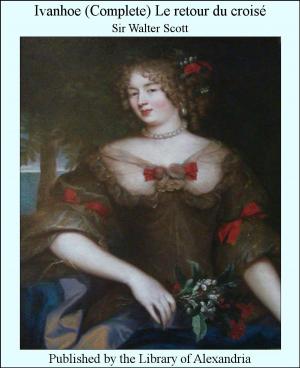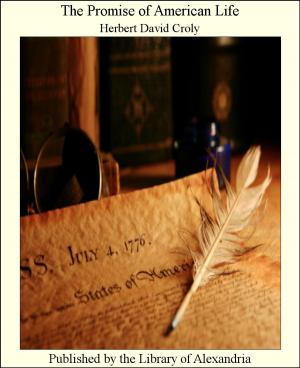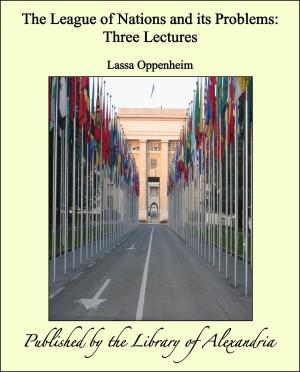The Life and Letters of Maria Edgeworth (Complete)
Nonfiction, Religion & Spirituality, New Age, History, Fiction & Literature| Author: | Maria Edgeworth | ISBN: | 9781465521088 |
| Publisher: | Library of Alexandria | Publication: | March 8, 2015 |
| Imprint: | Language: | English |
| Author: | Maria Edgeworth |
| ISBN: | 9781465521088 |
| Publisher: | Library of Alexandria |
| Publication: | March 8, 2015 |
| Imprint: | |
| Language: | English |
In her later years Miss Edgeworth was often asked to write a biographical preface to her novels. She refused. "As a woman," she said, "my life, wholly domestic, can offer nothing of interest to the public." Incidents indeed, in that quiet happy home existence, there were none to narrate, nothing but the ordinary joys and sorrows which attend every human life. Yet the letters of one so clear-sighted and sagacious—one whom Macaulay considered to be the second woman of her age—are valuable, not only as a record of her times, and of many who were prominent figures in them: but from the picture they naturally give of a simple, honest, generous, high-minded character, filled from youth to age with love and goodwill to her fellow-creatures, and a desire for their highest good. An admirable collection of Miss Edgeworth's letters was printed after her death by her stepmOther and lifelong friend, but only for private circulation. As all her generation has long since passed away, Mr. Edgeworth of Edgeworthstown now permits that these letters should be read beyond the limits of the family circle. An editor has had little more to do than to make a selection, and to write such a thread of biography as might unite the links of the chain. AUGUSTUS J.C. HARE. In the flats of the featureless county of Longford stands the large and handsome but unpretentious house of Edgeworthstown. The scenery here has few natural attractions, but the loving care of several generations has gradually beautified the surroundings of the house, and few homes have been more valued or more the centre round which a large family circle has gathered in unusual sympathy and love. In his Memoirs, Mr. Edgeworth tells us how his family, which had given a name to Edgeworth, now Edgeware, near London, came to settle in Ireland more than three hundred years ago. Roger Edgeworth, a monk, having taken advantage of the religious changes under Henry VIII., had married and left two sons, who, about 1583, established themselves in Ireland. Of these, Edward, the elder, became Bishop of Down and Connor, and died without children; but the younger, Francis, became the founder of the family of Edgeworthstown. Always intensely Protestant, often intensely extravagant, each generation of the Edgeworth family afterwards had its own picturesque story, till Richard Edgeworth repaired the broken fortunes of his house, partly by success as a lawyer, partly by his marriage, in 1732, with Jane Lovell, daughter of a Welsh judge. Their eldest son, Richard Lovell Edgeworth, was born in 1744, and educated in his boyhood at Drogheda School and Dublin University. Strong, handsome, clever, ingenious, and devoted to sports of every kind, he was a general favourite. But his high spirits often led him into scrapes. The most serious of these occurred during the festivities attendant on his eldest sister's marriage with Mr. Fox of Fox Hall, at which he played at being married to a young lady who was present, by one of the guests dressed up in a white cloak, with a door-key for a ring. This foolish escapade would not deserve the faintest notice, if it had not been seriously treated as an actual marriage by a writer in the Quarterly Review
In her later years Miss Edgeworth was often asked to write a biographical preface to her novels. She refused. "As a woman," she said, "my life, wholly domestic, can offer nothing of interest to the public." Incidents indeed, in that quiet happy home existence, there were none to narrate, nothing but the ordinary joys and sorrows which attend every human life. Yet the letters of one so clear-sighted and sagacious—one whom Macaulay considered to be the second woman of her age—are valuable, not only as a record of her times, and of many who were prominent figures in them: but from the picture they naturally give of a simple, honest, generous, high-minded character, filled from youth to age with love and goodwill to her fellow-creatures, and a desire for their highest good. An admirable collection of Miss Edgeworth's letters was printed after her death by her stepmOther and lifelong friend, but only for private circulation. As all her generation has long since passed away, Mr. Edgeworth of Edgeworthstown now permits that these letters should be read beyond the limits of the family circle. An editor has had little more to do than to make a selection, and to write such a thread of biography as might unite the links of the chain. AUGUSTUS J.C. HARE. In the flats of the featureless county of Longford stands the large and handsome but unpretentious house of Edgeworthstown. The scenery here has few natural attractions, but the loving care of several generations has gradually beautified the surroundings of the house, and few homes have been more valued or more the centre round which a large family circle has gathered in unusual sympathy and love. In his Memoirs, Mr. Edgeworth tells us how his family, which had given a name to Edgeworth, now Edgeware, near London, came to settle in Ireland more than three hundred years ago. Roger Edgeworth, a monk, having taken advantage of the religious changes under Henry VIII., had married and left two sons, who, about 1583, established themselves in Ireland. Of these, Edward, the elder, became Bishop of Down and Connor, and died without children; but the younger, Francis, became the founder of the family of Edgeworthstown. Always intensely Protestant, often intensely extravagant, each generation of the Edgeworth family afterwards had its own picturesque story, till Richard Edgeworth repaired the broken fortunes of his house, partly by success as a lawyer, partly by his marriage, in 1732, with Jane Lovell, daughter of a Welsh judge. Their eldest son, Richard Lovell Edgeworth, was born in 1744, and educated in his boyhood at Drogheda School and Dublin University. Strong, handsome, clever, ingenious, and devoted to sports of every kind, he was a general favourite. But his high spirits often led him into scrapes. The most serious of these occurred during the festivities attendant on his eldest sister's marriage with Mr. Fox of Fox Hall, at which he played at being married to a young lady who was present, by one of the guests dressed up in a white cloak, with a door-key for a ring. This foolish escapade would not deserve the faintest notice, if it had not been seriously treated as an actual marriage by a writer in the Quarterly Review
